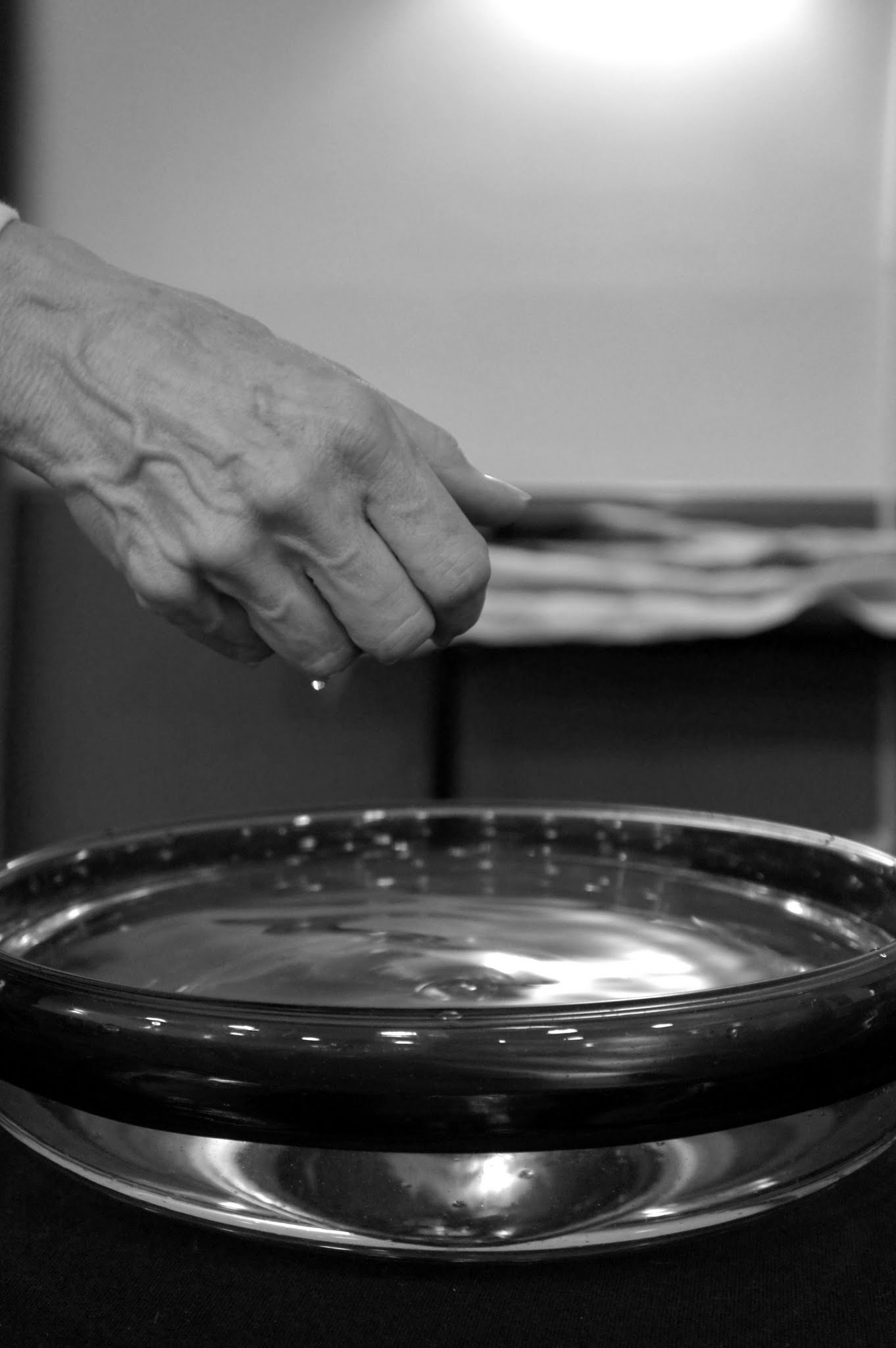The Greatest Wisdom From the Desert Christians - In One Line
I was sitting in my office the other day reading and trying to discover what the heck God would have for me to say on a Sunday morning, when a church member walked in and offered me a homemade blueberry scone. I accepted the gift, but stated I consumed a large breakfast about fifteen minutes just before. The young woman's face turned a bit downward as she realized that I was not planning on enjoying her gift.
As she left I turned back to my reading material (The Wisdom of the Desert by James O. Hannay) and read: "So far as the advice of the greatest Fathers can be said to form a rule, it may be expressed in the words -- "Do not eat to satiety."
Simple meals allow us to receive hospitality from others.
This is one of the few times that I sort of understood what the heck the desert mothers/fathers were talking about: Eating to your fill is unhealthy, but not because of the calories but because it denies hospitality.
In not eating the scone, because I was full, I denied the hospitality of the young woman. I was not able to, because my stomach was full, to accept any more from another.
Clergy have been told that self care is important because you can only give what you yourself have. If you are empty, then you have nothing to give.
This truth also holds not just if we are empty but also if we are too full. When we eat (or live) to satiety, then we are too full to accept anything else. This is an old truth but one that I often forget.
Do not eat/live to satiety - you never know when Christ calls you to accept a new thing.
Why am I talking with a Seminary Dean?
Not long ago I was able to sit down with Dr. Joretta Marshall the Dean at Brite Divinity School. In the conversation she touches on themes such as:
- Why we should not forgive and forget
- Do we need to forgive God?
- How to forgive without being held hostage to the past
- Why forgiveness is not something we do to achieve a prescribed outcome, regardless of the nobility of the outcome (such as reconciliation)
This is my first attempt at recording and interviewing so you can imagine that the first three minutes are a little slow, but I promise it picks up!
Thank you to Dr. Marshall and I look forward to hearing more from her in the Three Day Academy for Spiritual Formation in February 2017 (register to join with me here)!
A mob + the innocent + festival = Bad News
Church of the Transfiguration - Cape Cod
Over the past several weeks I have been re-studying the Gospel of John. Of the many things that recapture my heart with this my second favorite Gospel, I am reminded why Jesus keeps being so elusive. Specifically the times in the Gospel when Jesus says some variation of 'it is not my time yet."
So when is Jesus' time?
- Wedding at Cana (Chapter 2), Nope.
- How about when Jesus fed 5000 (Chapter 6), nope.
- The festival of Booths (Chapter 7), nope.
I could go on and on, because the gospel of John if full of these instances, however the point is made. The formula in the gospel of John that ensures that it is Jesus' time is three fold. Only when these three elements are present do you know that it is Jesus' time. Take a moment and see if you can figure it out yourself - what elements are needed in order for Jesus to no longer be elusive?
- Jesus' presence
- A festival
- A unified mob
There are times when Jesus is present and there is a festival but no unified crowd (Ch. 2, wedding, Jesus, no unified crowd).
There are times when Jesus is present and there is a unified mob but no festival (Ch. 8, Jesus, unified crowd against woman caught in adultery, no festival).
There are times where there is a festival and a unified mob but no Jesus (Ch. 9, Sabbath, unified mob, no Jesus).
Why do you think that these three elements are needed in order for it to then be the right "time?" I would submit that it is at the intersection of these three elements that Jesus is trying to teach us something about the nature of his death. The death of Jesus is not a transaction between humans and God (God is mad, Jesus is sacrificed, God's wrath is held back). The death of Jesus points us to the demonic nature of what happens when a unified mob acts in sacred violence we tend to kill the innocent.
If we believe that our cause is so righteous and correct, if we whip others into a frenzy and demand uniformity masquerading as unity, if we have innocent people we will end up crucifying the Christ once more.
Be cautious of anytime we find ourselves with a "righteous cause" (religious leaders of Jesus' day had a "righteous cause"). Be cautious of anytime we find ourselves placing a higher degree of holiness and purity over mercy and love (remember Jesus said, I desire mercy not sacrifice). Be cautious anytime we are willing call others unorthodox or identify ourselves with being "the majority" (Jesus was counted unorthodox and it was the perceived majority crowd that killed Jesus).
If we are taking about an election or a denomination, we may need to take another look at the intersection of the mob, the innocent and celebrations. Jesus sought out that intersection to teach us something, may we have ears to hear that lesson.

Be the change by Jason Valendy is licensed under a Creative Commons Attribution-NonCommercial-ShareAlike 3.0 Unported License.















